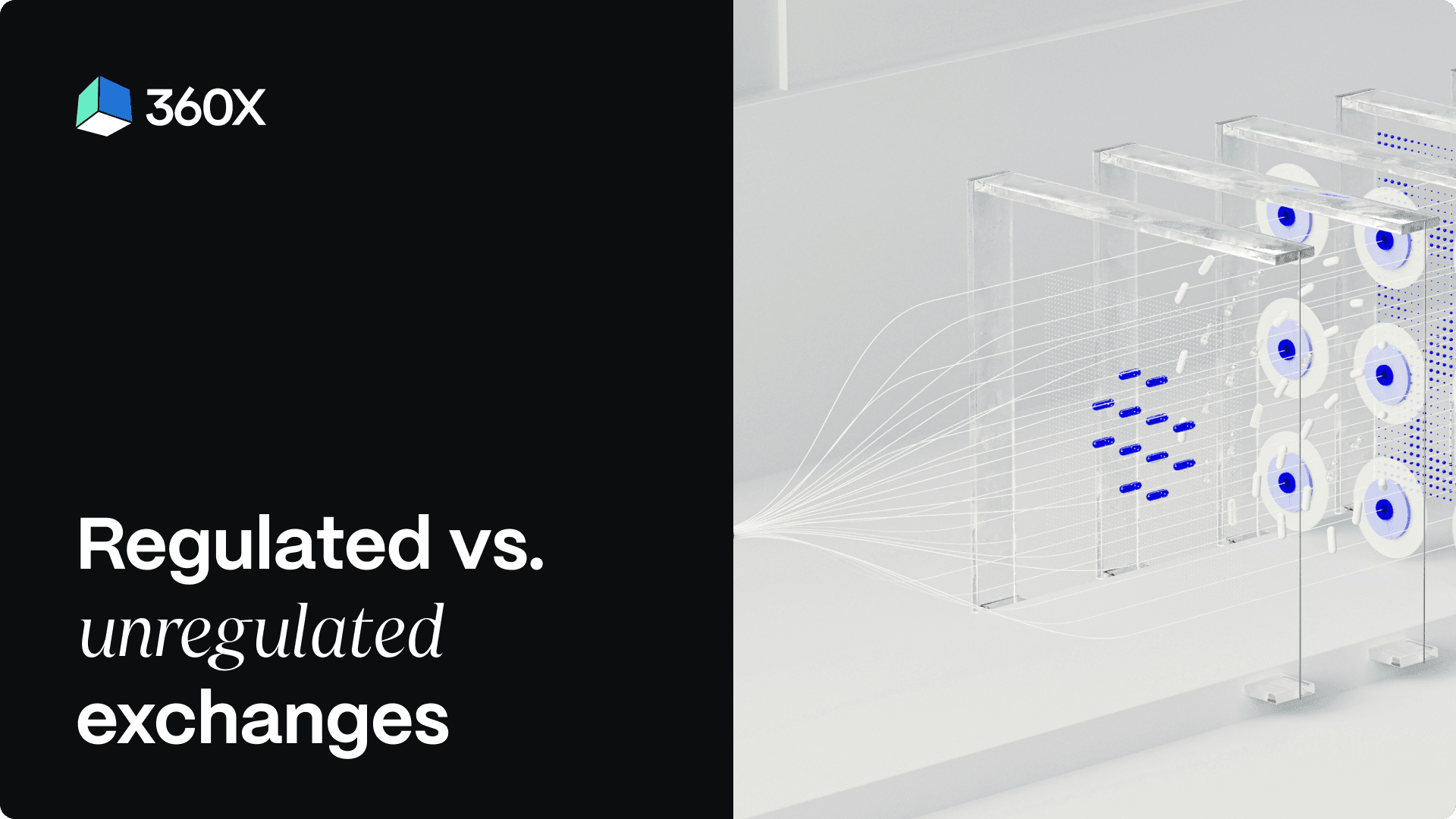Regulated vs. Unregulated Exchanges: Navigating the Crypto Trading Landscape
Crypto trading options got you overwhelmed? Explore regulated vs unregulated exchanges. We unveil the pros & cons to pick the platform that fits your security & trading style.
Apr 3, 2024
Ben Keil / 360X AG

The burgeoning world of cryptocurrency offers exciting investment opportunities, but also presents a unique challenge:choosing the right exchange to facilitate your trades. Two main categories dominate the landscape: regulated exchanges and unregulated exchanges (often Decentralized Exchanges, or DEXs). Understanding the strengths and weaknesses of each is crucial for making informed decisions about your crypto investments.
Unleashing Freedom with Unregulated Exchanges (DEXs)
DEXs entice users with a taste of financial autonomy. They operate on a peer-to-peer (P2P) basis, removing the need for a central authority to control transactions. This translates to:
Enhanced Privacy: No intermediary means no third party holding your personal information.
Freedom of Choice: Trade a wider variety of assets, including those that might not meet the listing requirements of regulated exchanges.
The Flip Side of Freedom: Risks Associated with DEXs
However, this lack of oversight comes with inherent risks:
Security Concerns: DEXs are prime targets for hackers due to their decentralized nature. Without robust security protocols, your funds and data are more vulnerable.
Limited Transparency: The absence of regulatory requirements means DEXs aren't obligated to provide financial disclosures. This makes it difficult to assess the platform's financial health and potential for fraud.
Potential for Market Manipulation: Unregulated environments create fertile ground for manipulative trading practices, potentially impacting prices and returns.
The Safe Harbor of Regulated Exchanges
Regulated exchanges stand in stark contrast to DEXs. They operate under the watchful eye of government and financial authorities, adhering to a strict set of regulations. This translates to:
Enhanced Security: Regulated exchanges invest heavily in robust security measures to protect user funds and data. Regular audits ensure compliance with these protocols.
Increased Transparency: Financial disclosures and regular reporting provide users with a clear picture of the exchange's financial standing and how their assets are managed.
Dispute Resolution Mechanisms: Established procedures exist to address user grievances and concerns, offering a layer of recourse in case of issues.
The Price of Security: Potential Drawbacks of Regulated Exchanges
While offering a safer environment, regulated exchanges come with a few trade-offs:
Limited Trading Options: Regulatory restrictions may limit the variety of assets available for trading compared to DEXs.
Potential Fees: Regulated exchanges often charge fees for transactions and account maintenance.
The Choice is Yours: Weighing the Options
The ideal exchange hinges on your individual priorities. If complete control and unrestricted access are paramount, a DEX might be tempting. However, be prepared to accept the heightened risk associated with security and transparency.Conversely, if prioritizing security and peace of mind outweighs absolute freedom, a regulated exchange provides a safer environment for your crypto investments.
Remember: When dealing with your hard-earned money, it's always wise to prioritize safety. Carefully consider your risk tolerance and investment goals before choosing an exchange. Regardless of your decision, stay informed and vigilant to navigate the exciting, yet ever-evolving, world of cryptocurrency.